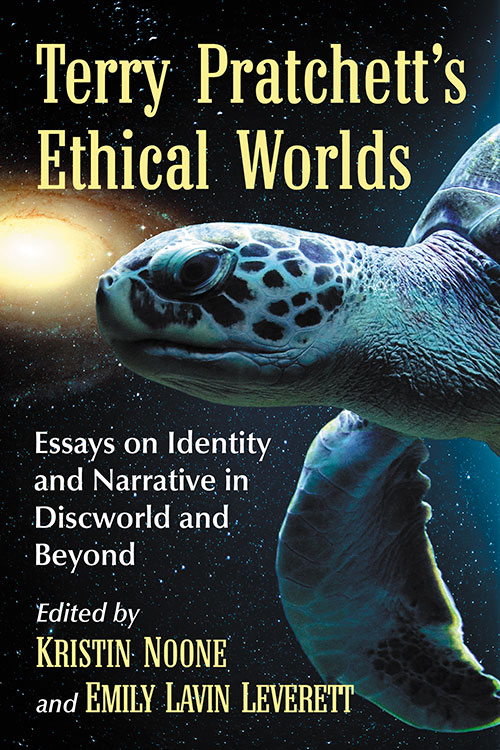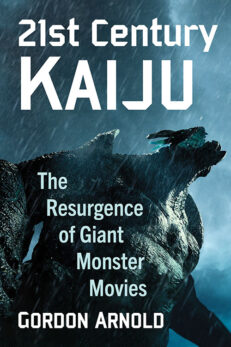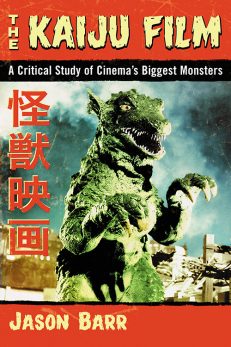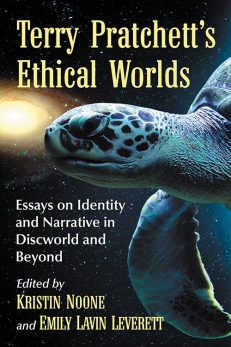Terry Pratchett’s Ethical Worlds
Essays on Identity and Narrative in Discworld and Beyond
Original price was: $29.95.$19.99Current price is: $19.99.
In stock
About the Book
Terry Pratchett’s writing celebrates the possibilities opened up by inventiveness and imagination. It constructs an ethical stance that values informed and self-aware choices, knowledge of the world in which one makes those choices, the importance of play and humor in crafting a compassionate worldview, and acts of continuous self-examination and creation. This collection of essays uses inventiveness and creation as a thematic core to combine normally disparate themes, such as science fiction studies, the effect of collaborative writing and shared authorship, steampunk aesthetics, productive modes of “ownership,” intertextuality, neomedievalism and colonialism, adaptations into other media, linguistics and rhetorics, and coming of age as an act of free will.
In all Pratchett’s constructed worlds and narratives—from Discworld, to the science-fictional flat planet of Strata, from a parody of Conan the Barbarian’s Cimmeria to the comedically apocalyptic Good Omens—questions of identity, community, and the relations between self and other are constantly examined, debated, and reshaped. Pratchett’s worlds thus become ethical worlds: fantasies in which language always matters, stories resonate with the past and the future, and choices emphasize the importance of compassion and creation.
About the Author(s)
Bibliographic Details
Edited by Kristin Noone and Emily Lavin Leverett
Format: softcover (6 x 9)
Pages: 155
Bibliographic Info: appendix, notes, bibliographies, index
Copyright Date: 2020
pISBN: 978-1-4766-7449-0
eISBN: 978-1-4766-3803-4
Imprint: McFarland
Table of Contents
Introduction: Terry Pratchett’s Ethical Worlds
Kristin Noone and Emily Lavin Leverett 1
Something That Gods Are: Acts of Creation in Terry Pratchett’s Early Science Fiction
Kristin Noone 5
Conan the Nonagenarian: Beyond Hyborian Hypermasculinity with Terry Pratchett’s Cohen the Barbarian
Mike Perschon 19
Carrot Ironfoundersson: Medieval Romance, Narrative Causality and the Ethics of Choice in Terry Pratchett’s Guards! Guards!
Emily Lavin Leverett 34
Self-Discovery, Free Will and Change: The Ethics of Growing Up in the Fantasy Novels of Terry Pratchett
Kathleen Burt 45
The Anglo-Saxon Ælf: Old English Influences in Terry Pratchett’s The Wee Free Men and The Shepherd’s Crown
Livia Bongiovanni 61
Constructing Identity Through Language in Discworld
Elise A. Bell 77
Rhetoricity of Discworld: Magic and the Ethics of Footnotes
Amy Lea Clemons 91
The Golempunk Manifesto: Ownership of the Means of Production in Pratchett’s Discworld
Janet Brennan Croft 110
Neomedievalism and the Ethics of Colonization in Pratchett and Baxter’s The Long Earth and The Long War
Sadie E. Hash 124
Appendix: Works and Adaptations 141
About the Contributors 145
Index 147
Book Reviews & Awards
“An illuminating—and, honestly, just plain fun to read—addition to the growing body of scholarly work on Pratchett’s oeuvre…readers will find highly-enjoyable pieces…a delight to read. Its ambitious project and often complex topics are bolstered by contributors’ obvious enjoyment of the texts themselves…accessible and exciting, one of those uncommon works of scholarship that I would also pick up on a rare day off just to enjoy seeing rich new perspectives on a favorite fantasy world…well worth a read…those interested in examinations of the fantasy genre…will appreciate the collection’s focus…[and] value its thoughtful revisitation of a gentle giant in the genre.”—SFRA Review





